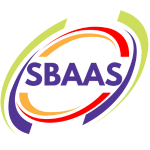BAS, Payroll and EOFY: How to Plan, Not Panic
For many small business owners, the acronyms BAS, PAYG, and EOFY might as well scream “stress”. These key financial and compliance milestones creep up each quarter, often with last-minute scrambling, uncertain figures, and a mad rush to meet obligations.
But it doesn’t have to be that way.
This article offers a step-by-step breakdown of BAS, payroll and EOFY: how to plan, not panic, specifically tailored for small and medium businesses operating in the Australian context.
Whether you’re a sole trader with one casual employee or a growing team of ten, the secret to staying compliant and confident lies in systems, rhythm, and readiness, not adrenaline.
Let’s explore how to build those systems so tax season becomes a formality, not a fire drill.
Why Planning Beats Panic (Every Time)
Compliance isn’t just about avoiding penalties—it’s about creating clarity.
When you understand your numbers, maintain your records, and stay on top of your obligations, you can:
- Reduce your tax liability through legitimate deductions
- Improve your cash flow with accurate forecasting
- Sleep better knowing you’re audit-ready
- Focus on growth, not just survival
So why do so many businesses panic around BAS, payroll and EOFY?
Because they’re reviewing backwards, reacting instead of preparing. Planning transforms these recurring tasks from unpredictable interruptions into reliable checkpoints in your business rhythm.
Understanding the Big Three: BAS, Payroll and EOFY
Before learning BAS, payroll and EOFY: how to plan, not panic, let’s define each clearly.
Business Activity Statements (BAS)
Issued by the ATO monthly, quarterly, or annually (depending on your business), BAS reports on:
- Goods and Services Tax (GST)
- Pay As You Go (PAYG) withholding and instalments
- Fringe Benefits Tax (FBT) instalments
- Fuel tax credits and other industry-specific claims
BAS lodgements are due either monthly (21st of the following month) or quarterly (28th days after the quarter’s end).
Payroll
This covers everything involved in paying employees correctly and compliantly, including:
- PAYG tax withholding
- Superannuation Guarantee contributions
- Leave accruals
- Reporting via Single Touch Payroll (STP)
Payroll is a weekly, fortnightly or monthly process, but the compliance elements stack up over time and hit hardest at EOFY.
End of Financial Year (EOFY)
EOFY is not just June 30. It includes:
- Finalising income statements via STP
- Reconciliation of payroll and super
- Stocktake, asset register, and depreciation
- Lodging tax returns
- Assessing your financial position and strategy
It’s the one time each year where all financial systems intersect—so preparation is critical.
What Goes Wrong—and Why
Most panic around BAS, payroll and EOFY happens for predictable reasons. These include:
- Poor record-keeping throughout the year
- Inconsistent bookkeeping routines
- Manual payroll processes
- Lack of calendar-based planning
- Waiting until deadlines to check figures
- Unreliable or outdated software
- Trying to DIY beyond capacity
Understanding BAS, payroll and EOFY: how to plan, not panic means understanding that panic is not a failure of knowledge—it’s a failure of systems.
The Planning Framework That Prevents Panic
Below is the SBAAS-endorsed monthly and quarterly workflow that small businesses can use to reduce stress and stay compliant.
Weekly
- Update transactions in accounting software
- Reconcile bank feeds
- File receipts and match to expenses
- Approve timesheets
- Verify payroll figures
Fortnightly
- Process payroll via STP
- Confirm PAYG and super obligations
- Review leave balances and staff entitlements
Monthly
- Reconcile payroll against reports
- Check super accruals and ensure timely payment
- Prepare draft BAS data (if lodging monthly)
- Review debtor and creditor reports
- Review financial dashboards
- Set aside cash for upcoming obligations
Quarterly
- Finalise and lodge BAS
- Check GST coding accuracy
- Conduct a director or partner meeting with a financial review
- Book ATO payment dates in the calendar
Annually
- Finalise STP
- Lodge TPAR (if required)
- Conduct stocktake (if relevant)
- Update asset register and depreciation
- Complete year-end reconciliation
- Provide books to the accountant for tax return
This approach turns compliance into cadence.
Common BAS Mistakes—and How to Avoid Them
When thinking about BAS, payroll and EOFY: how to plan, not panic, BAS is often where businesses stumble first.
Mistake 1: Misreporting GST on purchases or sales
Solution: Set up rules in your accounting software and double-check supplier GST registration.
Mistake 2: Claiming GST without a tax invoice
Solution: Never file claims without a proper invoice, even small ones.
Mistake 3: Late lodgements and payments
Solution: Use automatic calendar reminders or outsource to a BAS agent for timely lodgement.
Mistake 4: Not reconciling payroll before BAS
Solution: PAYG and super must match payroll data before inclusion in your BAS.
Mistake 5: Filing BAS without reviewing the P&L or balance sheet
Solution: These reports reveal anomalies—review them every quarter.
Payroll Panic Triggers—and Their Fixes
Payroll affects people. Mistakes here impact morale, reputation, and compliance.
Problem: Super not paid on time
Fix: Automate super via clearing houses and schedule regular reviews.
Problem: STP not lodged or incorrectly reported
Fix: diarise due dates and then diarise 1 week before to lodge super to allow clearing house time to meet deadlines.
This will change with payday super.
Problem: Incorrect leave accruals
Fix: Verify the award rules in your system. Use templates based on employee types.
Problem: Confusion around contractor vs employee classification
Fix: Use the ATO’s tool or speak to your advisor—misclassification is a common risk.
Payroll needs process, not panic.
EOFY: The Annual Audit You Can Control
EOFY is not a surprise. It happens every year. Yet many small businesses approach it like it’s a sudden crisis.
Here’s how to get it right:
In April–May
- Review your financial YTD performance
- Identify deductions and bring-forward opportunities
- Plan super top-ups before 30 June
- Revisit your asset purchases and depreciation strategy
- Schedule a meeting with your advisor
In June
- Finalise payroll
- Reconcile super, PAYG and wages
- Update your budget and cash flow forecast
- Begin preparing tax return documents
EOFY should be an opportunity to assess performance, not just finalise tax.
Leveraging Your Accountant and Bookkeeper Effectively
The best way to handle BAS, payroll and EOFY: how to plan, not panic is to know which tasks are yours—and which should be outsourced.
Your accountant can:
- Advise on tax planning and structures
- Review and finalise year-end adjustments
- Lodge returns
- Provide strategic insight
Your bookkeeper can:
- Maintain day-to-day records
- Reconcile accounts
- Process payroll and super if registered as a BAS agent
- Lodge BAS if registered as a BAS agent
But both need your cooperation: accurate records, timely access, and proactive communication.
Technology That Makes It Easier
Modern accounting and HR software can automate much of your compliance process. Top tools include:
- Xero: Cloud-based accounting with payroll and BAS integration
- QuickBooks Online: Ideal for cash-based businesses and GST tracking
- MYOB: Suitable for payroll-heavy businesses and inventory management
- Deputy or Tanda: For rostering and award-compliant timesheets
- Super Clearing Houses: Automate super payments and track contributions
Technology is only useful if used correctly—ensure your systems are updated and integrated.
Avoiding Audit Triggers
When the ATO sees red flags, you want your books to be airtight.
Watch for:
- Inconsistent BAS vs tax returns
- Unusual swings in reported income
- Unexplained or duplicated transactions
- Frequent late lodgements
- Employee complaints about unpaid entitlements
Staying calm at EOFY means being compliant all year round.
Final Thoughts: Control Beats Crisis
No matter your size, sector or setup—compliance is manageable when built into your rhythm.
Understanding BAS, payroll and EOFY: how to plan, not panic doesn’t require specialist skills. It requires discipline, process, and support.
Because at the end of the day, panic is optional. Planning is available.
Ready to Get Your Financial Compliance Under Control?
SBAAS supports small businesses across Australia with integrated bookkeeping, payroll processing, BAS lodgement and EOFY preparation through our Actually Supported service model.
Book a consultation today or learn more about SBAAS and say goodbye to dreadlines for good.

Trudi Allgood
Chief Commercial Officer
Trudi is the Chief Commercial Officer at SBAAS. With over 20 years of experience in finance, human resources, and operational leadership, she is known for guiding organisations through complex change with clarity, confidence, and results-driven focus.
She has successfully managed government-funded programs, including the NDIS and the Indigenous Eye Health Service (IRIS) project, ensuring full compliance with reporting and performance requirements. Trudi’s extensive project management experience extends from the implementation of new payroll systems to the delivery of complex build and renovation works, consistently meeting timelines, budgets, and stakeholder expectations.
Her practical leadership style, strong communication skills, and commitment to continuous improvement make her a trusted advisor. Passionate about the role of small businesses in Australia’s economy, Trudi is dedicated to helping them grow sustainably, perform at their best, and deliver long-term impact.
Qualifications:
- Cert IV Bookkeeping and Accounting
- Diploma of Accounting
- Diploma of Business (Operations)
Memberships and Accreditations:
- Registered BAS Agent
- Xero Payroll Certified
- SM8 Partner Certified
- Small Business Association of Australia Sponsor
-

Business in the Wonderful World of Oz – Workplace Health and Safety – A Comprehensive Guide
$29.95 Add to cart -

Business in the Wonderful World of Oz – Risk Management – A Comprehensive Guide
$29.95 Add to cart -

Business in the Wonderful World of Oz – Property Leasing – A Comprehensive Guide
$29.95 Add to cart -

Business in the Wonderful World of Oz – Intellectual Property Rights – A Comprehensive Guide
$29.95 Add to cart -

Business in the Wonderful World of Oz – Future-Ready: Navigating Change and Seizing Opportunity in Australian Business
$29.95 Add to cart -

Business in the Wonderful World of Oz – Fair Work – A Comprehensive Guide
$29.95 Add to cart -

Business in the Wonderful World of Oz – Export and Global Trade – A Comprehensive Guide
$29.95 Add to cart -

Business in the Wonderful World of Oz – Cyber Security – A Comprehensive Guide
$29.95 Add to cart -

Business in the Wonderful Land of Oz – Australian Consumer Law – A Comprehensive Guide
$29.95 Add to cart -

Business in the Wonderful World of Oz – Crisis Management
$29.95 Add to cart -

Business in the Wonderful World of Oz – The Ultimate Guide
$29.95 Add to cart
